Review: Italian Romance
(Australian Romantic & Classical Orchestra)
CLIVE PAGET on MARCH 27, 2017
★★★★☆
Freshly renamed, Gill's HIPsters excel on Benjamin Bayl's Grand Tour.
What a great time to be a HIPster. Australia’s burgeoning Historically Informed Performance scene has blossomed in recent years to accommodate several substantial new ensembles alongside the more established Brandenburgs and a plethora of quartets and trios specialising in various flavours of ‘early music’, but none are more exciting though than the artists formerly none as orchestra1788. The Australian Romantic and Classical Orchestra may sport many players familiar from their older sister groups, but there’s an infectious energy and a sense of enthusiasm that turns an ARCO concert into an event.
The wide-ranging programme, which travelled from Vienna to Rome by way of Leipzig, launched with a fine account of Beethoven’s Coriolan Overture. It was Wagner who theorised that the dramatic C Minor opening (always a specially moody key for Beethoven) depicts Coriolanus’s warlike determination while the yearning secondary melody represents his mother’s appeal for mercy. Principal Guest Conductor Benjamin Bayl delivered just such a dramatic trajectory.
Rachael Beesley. Photo © Nick Gilbert
There was a tangible solidity to the ARCO sound, from the resolute opening through the bosom-heaving dramatics, and all done with impeccable intonation. Bayl offered a controlled performance, yet one that pulsed with energy, ensuring the development section always had a sense of purpose. A real buzz in the lower strings mingled with sonorous brass (in particular the superb natural horns), while the woodwind featured mellow flutes and a bassoon sound so entirely different from that of the modern instrument.
Director Rachael Beesley then led from the violin in an engaging reading of the same composer’s F Major Romance, her bright, light tone soaring perfectly over the warm accompaniment while she decorated the lyrical line with grace, flair and just the right degree of sentiment. The delicate ending was quite exquisite.
Richard Gill, Nicole van Bruggen, Rachael Beesley and Benjamin Bayl. Photo © Nick Gilbert
It’s debatable whether Beethoven's lively Contredanses were a way of letting down his hair or simply a way to make a fast buck. Who cares, though. Half country dances, half high-falutin’ art music (the finale of the Eroica makes a fleeting appearance), this genial music is a reminder of how close the late-Classical world was to the popular music that would shortly make the fortunes of Strauss and Lanner. It was a neat idea to contrast the buzz of Viennese society (the woodwind especially came into its own here) with the emotional exile and solitude of the deaf composer by interspersing the dances with readings from the contemporaneous Heiligenstadt Testament. ARCO Artistic Director Richard Gill did the honours and the stark contrast between the jollity of the music and the composer’s profound gloom couldn't have been more poignantly drawn.
Hugo Wolf’s Italian Serenade is a concert hall rarity, one of those idiosyncratic pieces of music that one seldom gets to hear. It’s a warm sunny affair, and lovingly played here with just the right amount of Viennese slipping and sliding around.
Very 20th-century in its modernity, and right on the cusp of ARCO’s Romantic cut off point, anyone wanting proof that Wolf was barking mad might look no further than the wacky, off-kilter drunken solos for violin, viola, and cello in the central section. A genuinely original work, ARCO gave it a winningly quirky performance.
One of the quintessential Romantic symphonies, and a work expressing Northern Europe’s fascination with the Grand Tour, topped the bill. Mendelssohn’s tuneful Fourth – the Italian of 1833 – was worth the waiting for and Bayl judged the crucial tempo of the first movement just right. Fleet-footed fiddles in the composer’s Midsummer Night’s Dream vein, warm throated clarinets, burnished horns and the rattle of real kettledrums (i.e. ones that look like proper battered old copper pots), built to a fine series of climaxes. The ensuing Pilgrim March was crisply articulated and refreshingly brisk, though perhaps the portamenti felt a little overdone given the subject matter.
The minuet looks back to Beethoven, the slides here feeling entirely appropriate, though the trio was the only time the natural horns felt seriously challenged all night – you can see why brass manufacturers were striving at the time to make life easier for their struggling-to-keep-up clients (the piston valve would come in around 1840). Some superb work by the flutes in the whirlwind finale saw the orchestra pass that test with flying colours. It’s in all-guns-blazing movements like this that the real gains to be had out of period instruments come to the fore, with so many textures and colours to be explored. ARCO’s performance felt satisfyingly detailed, yet exhilaratingly paced.
Newly government funded, and freshly housed in the perfect acoustic of City Recital Hall, this was the group’s first outing of the year. Acting as a ringmaster for the evening, Richard Gill declared at one point that ARCO is here to stay. It’s Rossini and Schubert up next in May. Diaries out, please.
- See more at: www.limelightmagazine.com.au



